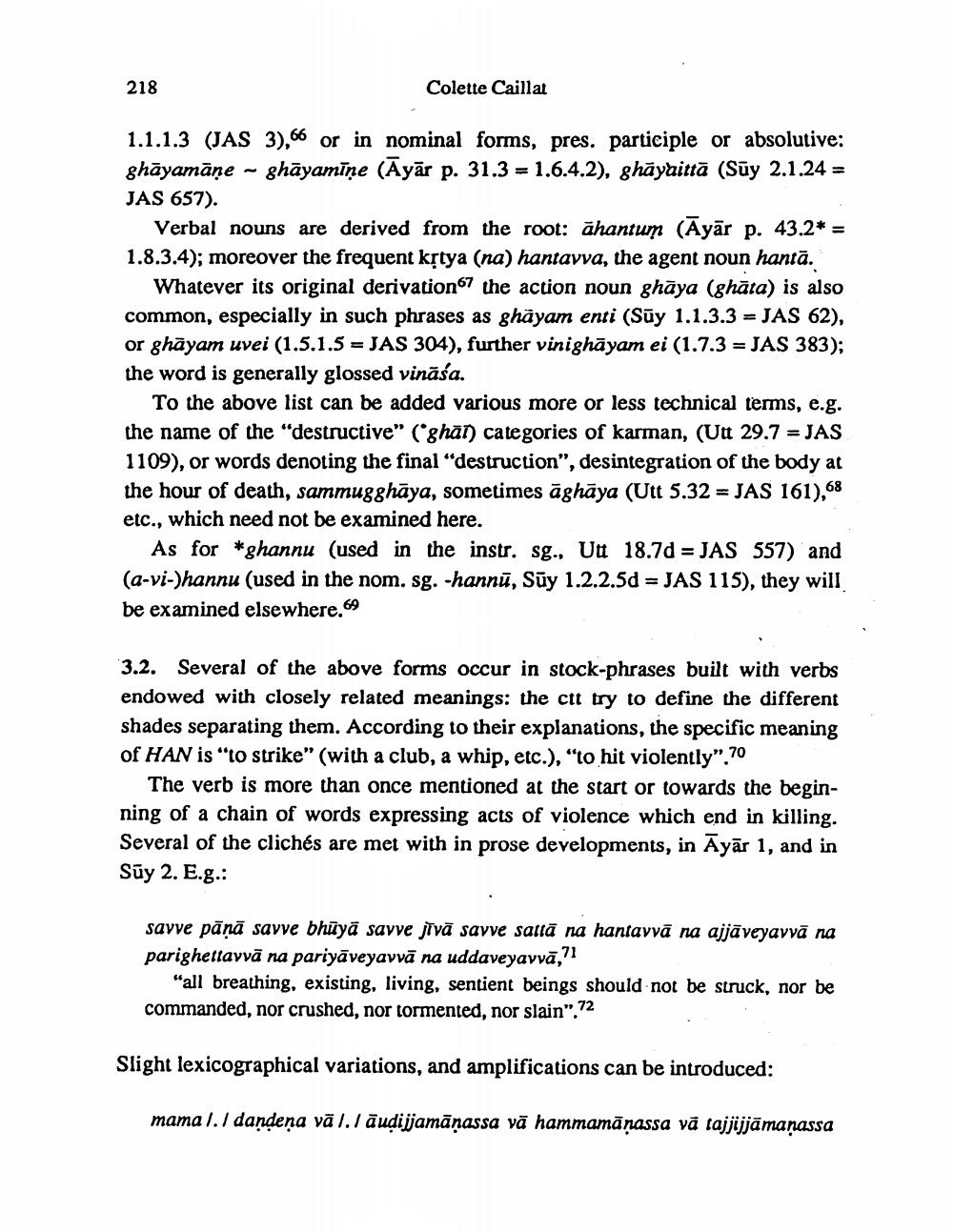________________
218
Colette Caillat
1.1.1.3 (JAS 3),66 or in nominal forms, pres. participle or absolutive: ghāyamīne (Āyār p. 31.3 1.6.4.2), ghāyaitṭā (Sūy 2.1.24 =
ghāyamāņe
JAS 657).
Verbal nouns are derived from the root: ahantum (Āyār p. 43.2* = 1.8.3.4); moreover the frequent kṛtya (na) hantavva, the agent noun hantā.
Whatever its original derivation67 the action noun ghāya (ghata) is also common, especially in such phrases as ghayam enti (Sūy 1.1.3.3 = JAS 62), or ghayam uvei (1.5.1.5 = JAS 304), further vinighāyam ei (1.7.3 = JAS 383); the word is generally glossed vināśa.
~
To the above list can be added various more or less technical terms, e.g. the name of the "destructive" ("ghai) categories of karman, (Utt 29.7 = JAS 1109), or words denoting the final "destruction", desintegration of the body at the hour of death, sammugghāya, sometimes aghāya (Utt 5.32 = JAS 161),68 etc., which need not be examined here.
As for *ghannu (used in the instr. sg., Utt 18.7d=JAS 557) and (a-vi-)hannu (used in the nom. sg. -hannu, Suy 1.2.2.5d = JAS 115), they will be examined elsewhere.69
3.2. Several of the above forms occur in stock-phrases built with verbs endowed with closely related meanings: the ctt try to define the different shades separating them. According to their explanations, the specific meaning of HAN is "to strike" (with a club, a whip, etc.), "to hit violently".70
The verb is more than once mentioned at the start or towards the beginning of a chain of words expressing acts of violence which end in killing. Several of the clichés are met with in prose developments, in Ayar 1, and in Suy 2. E.g.:
savve pāṇā savve bhūya savve jīvā savve saltā na hantavva na ajjāveyavvā na parighettavva na pariyāveyavvā na uddaveyavvā,71
"all breathing, existing, living, sentient beings should not be struck, nor be commanded, nor crushed, nor tormented, nor slain".72
Slight lexicographical variations, and amplifications can be introduced:
mama I. I dandeņa vā 1. I audijjamāṇassa vā hammamānassa va tajjijjāmaṇassa




